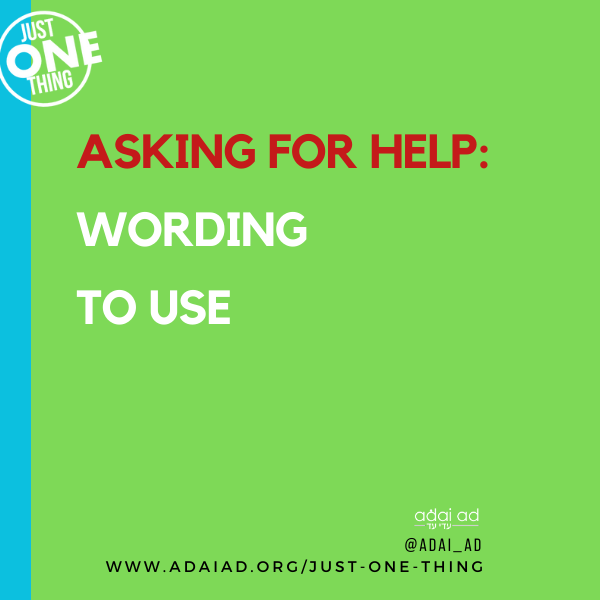The way we ask for help can significantly impact whether and how we receive assistance, as well as the quality of our relationships. When we approach others with empathy and clarity, stating our needs without judgment, it fosters a sense of cooperation, mutual respect, and understanding.
The NVC (Non Violent Communication) model in asking for help encourages empathy and cooperation, fostering a collaborative environment where both parties feel heard and valued. An NVC ask includes these elements:
Observation: Begin by stating the observable facts without judgment or evaluation. “I’m looking at this list of things that need to be done to get the seder ready. There are so many details to take care of.”
Feeling: Express how you feel about the situation using “I” statements. “I feel overwhelmed by all that needs to get done.”
Need: Clearly communicate the underlying need or desire. “I need help to get through all of it so I feel calm and happy at the seder.”
Request: Make a specific request for the type of help you need. “Can we please go through this list and divide up the work so that it feels more manageable?” Or, “Can you please take the kids out from 12-3 so I can work without the distraction from the kids?”
By incorporating these elements into our requests for help, we create an environment where both parties feel empowered to collaborate effectively, leading to more successful outcomes and stronger relationships.


